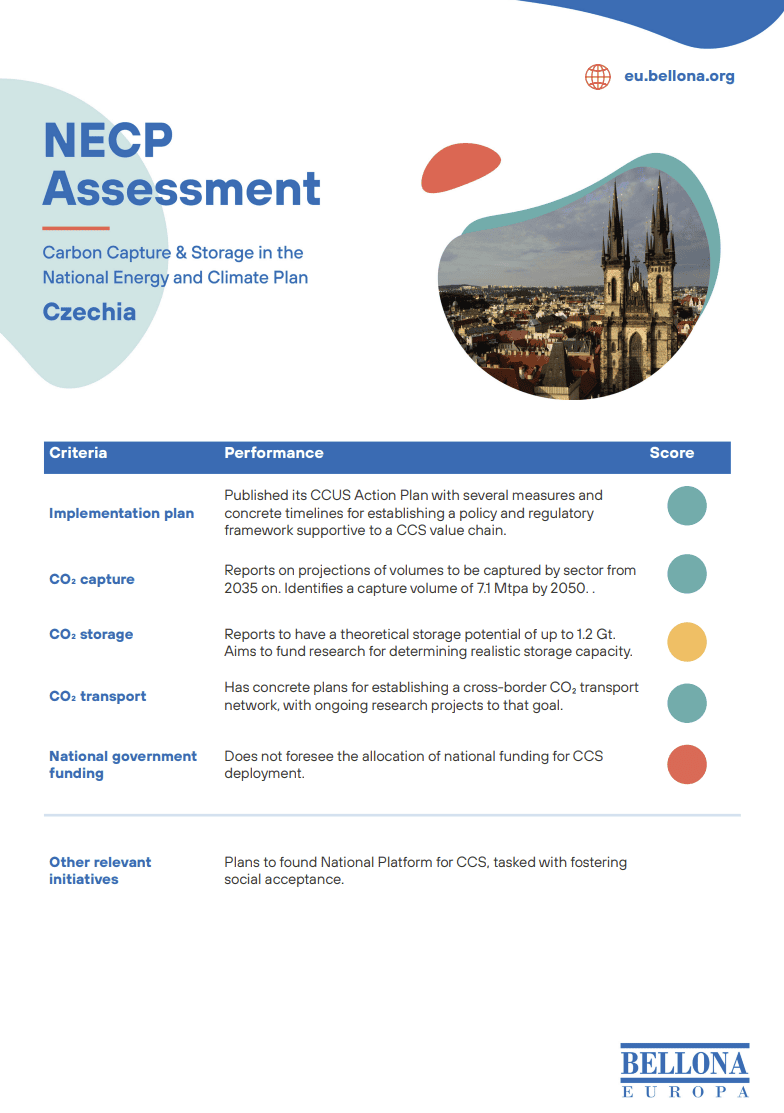
Carbon Capture and Storage: how Greece is Planning for a Cleaner Future
As part of its updated National Energy and Climate Plan (NECP), Greece has introduced an ambitious plan to scale up Carbon Capture and Storage (CCS). This technology traps CO₂ from factories and other sources before it enters the atmosphere and locks it deep underground. It’s especially important in industries like cement and oil refining - where emissions are hard to avoid even with clean energy. This analysis is part of a broader effort by COREu partner BELLONA to assess how different EU countries plan to reach climate neutrality.
CCS in Greece: What is planned?
Greece’s climate roadmap includes:
- Capturing 3.3 million tonnes of CO₂ per year by 2030, increasing to 8.4 million by 2050.
- Applying CCS to cement factories and refineries, especially those producing grey hydrogen.
- Three major projects—IRIS, IFESTOS and OLYMPUS—starting operations between 2028 and 2030, all supported by EU Innovation Fund grants.
- A future role for Direct Air Capture (DAC) starting in 2045 to remove CO₂ directly from the atmosphere.
The Prinos offshore site will serve as Greece’s first CO₂ storage hub, with operations starting in 2026 and expanding to 3–4 Mt annually by 2029.
A regional storage hub in the making
Greece isn’t acting alone. The country:
- Is developing pipeline and shipping infrastructure to move CO₂ from factories to Prinos.
- Has signed partnerships with Egypt, Cyprus, and Norway to explore cross-border carbon storage.
- Is calling for EU-level regulatory reforms to simplify CO₂ transport between countries.
This positions Greece not only as a CCS adopter, but as a regional carbon storage hub, with potential to serve neighbouring countries like Italy.
Legislation and support
Bellona’s analysis of the Greek NECP and related documents found that:
- Greece is building a new regulatory framework for CCS, as part of its Recovery and Resilience Plan.
- A unique model will allocate half of CO₂ storage capacity to public access, with the other half reserved by the state.
- The government is exploring financial tools similar to Carbon Contracts for Difference (CCfDs) to attract long-term investment. Still, the exact level of national funding remains uncertain, and plans for hard-to-abate sectors like waste or fertilisers are not yet detailed.
Why This Matters
CCS isn’t a cure-all. But for certain industries, it’s one of the only short-term options to cut emissions significantly. Greece is taking concrete steps to lead in this space, with real projects, strong EU support, and a growing network of partnerships. This assessment is part of Bellona’s NECP monitoring series, which contributes to our larger task within the COREu project: analysing and guiding the development of effective CCS policies across Europe.
You can read the full analysis here.

